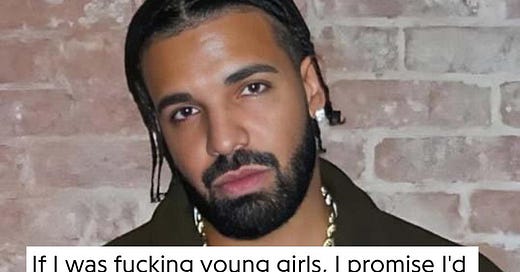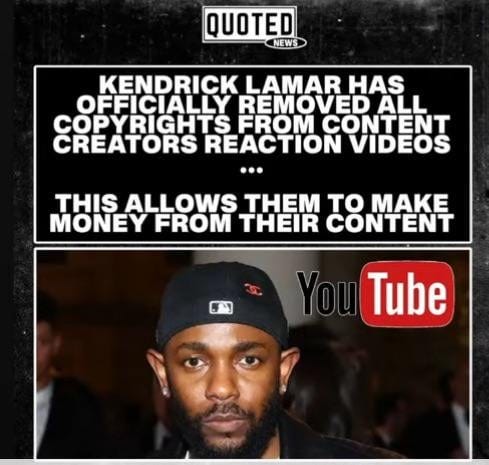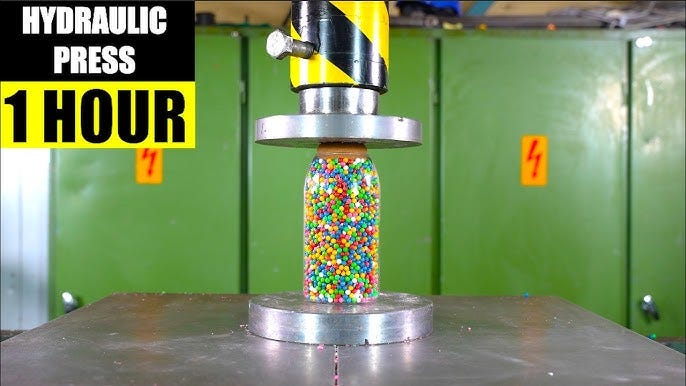Borkowski Media Trends: Tory Defection, Kendrick vs Drake, Brewdog & Apple Fail
Pick Me Natalie
There’s a lot to unpack in the defection of former Conservative MP Natalie Elphicke to Starmer’s Labour Party this week. As Rishi Sunak’s government continue to circle the drain in the wake of the local elections, it was inevitable that desperate decision-making would lead to reputational fumbles. But it is surprising that the biggest political own goal seems to have come from the left. The BBC reports that Starmer’s team were delighted by the move, predicting it would help them scoop up more support from those who would otherwise habitually vote Tory. While most Labour MPs are holding the party line and remaining tight-lipped in public about their own concerns, there has been a significant amount of backlash from the more outspoken left.
Much of the criticism stems from Elphicke’s defence of her ex-husband, Charlie Elphicke, who was convicted of sexual assault in 2020. Even after his conviction, she spoke out, saying that he was an “easy target for dirty politics and false allegations” because he was rich and handsome. As a result of this pushback, Elphicke apologised for the comments yesterday, saying it was “an incredibly stressful and difficult” period. But even if the most charitable-minded lefties decide to forgive this particular murky bit of history, there still remains the sticky subject of her policies – pro-Brexit, anti-immigration and undoubtedly fiscally conservative. Elphicke’s shared disdain for the Rwanda policy seems to have been her saving grace in the eyes of Kier Starmer. But has winning over one MP been worth the damage done to the trust of his core voter base?
Crisis lessons from viral feud
2pac vs Biggie, Taylor Swift vs Kanye or Rebekah Vardy vs Coleen Rooney, high-profile feuds are often legacy-defining. However reputations are on the line when two heavyweights trade blows, especially when the audience craves a ‘winner and loser’. When the battleground is a war of words, subjectivity can distort the outcome, making it hard to call a result. Usually celebrities can mitigate the most dangerous outcomes by reducing basic mistakes, which generally arise when egos and hotheads lash out with no plan.
Kendrick Lamar vs Drake’s has gripped the internet: two superstar hip-hop artists, Drake the hit-maker, Kendrick the artist’s artists. They have been going back and forth for years in the form of convoluted jibes for over a decade.
So now, since April this year, each artist has released several tracks dedicated to one another, and now the dust has settled, it’s clear Kendrick came with a plan. Kendrick ruthlessly dismantled Drake with claims he fathered a secret child, has a private ‘Tinder-styled’ sex ring, and had sexual relations with girls under the age of consent. Kendrick also committed to meticulously timing the releases of each track. He didn’t rush releasing his first diss ‘Euphoria’ (the fastest-selling solo rap song of the year), setting up a devastating 1-2 blow. The moment Drake released his follow-up ’Family Matters’, Kendrick immediately stuck back with two songs in quick succession - forcing a response out of Drake (via a song, not a statement) that defended accusations of paedophilia by saying (to paraphrase) I’m too famous for that accusation - if I’m guilty, I would’ve been arrested by now.
Time-lining this beef would require a long-form essay, but the key takeaways were Kendrick leveraged the drama for commercial success. He let the tension build, waiting almost two week after Drake’s first track to respond. The wait allowed Kendrick to pen some hard-hitting attack lines, likely recording multiple tracks and carefully planning his next moves. And while all eyes were on the ongoing battle, he gave fans more and more tracks, lines and historical references to digest, then announced that he’d removed copyright stipulations on these tracks (Drake quickly followed suit), enabling more content creators to react and monetise their content on social media platforms both incentivising more people to jump in and getting the people on side by sharing the wealth.
With Drake on the back foot and most people ridiculing his defence, Drake’s reputation is at an all-time low. Will this affect future record sales? Probably not. But this is a bruising encounter that has forced damning allegations that were confined to the corners of TikTok conspiracy theories to the mainstream’s attention. While Drake is now likely planning his next moves with a crisis and reputation team to try to mop up the mess, it will go down as an encounter that could've gone very differently with a well-prepared strategy.
Pressing matter for Apple
A lot was riding on this week’s Apple announcement. The announcement of two new iPad models was seen as an opportunity to buck a downward trend in the tablet market, currently at its lowest ebb since the early days of 2011 – just 130 million devices were sold in 2023 across all brands, while sales of the iPad now make up just 6% of Apple’s overall revenue. Apple’s stock has also lagged behind its Big Tech rivals this year.
Yet, in a rare misstep for arguably the most brand-conscious of companies, the accompanying ad for the new iPads sparked a significant backlash online. The clip shows a number of objects, including musical instruments, cameras, and art supplies, being crushed by a hydraulic press, which then lifts to reveal the new iPad, positioned as capable of all those things and more. Amongst other criticisms, it was accused of signifying “the destruction of the human experience” by Hugh Grant.
The clip is undoubtedly misguided – strangely negative for an advert. Consumer insights platform Zappi found in a focus group that it overperformed in emotions such as shock and confusion rather than the more traditionally sought-after “happiness and laughter.” It is also, arguably, wilfully ignorant of the very real fears experienced by many creatives about their job security in the wake of AI and the growing implementation of technology into the artistic progress, an issue that was a significant part of last year’s Hollywood strikes.
The ad has since been pulled from planned TV spots and Apple has issued an apology, acknowledging that the piece missed the mark. By any measure it’s an own goal, not least because it has seen the business drawn into a debate that they’ve historically been wise enough to avoid. But it’s also a useful lesson in the dangers of capitalising on a trend, however subtly. Fall down a TikTok rabbit hole and you’ll be inundated with hydraulic press ASMR videos, where objects, from foodstuff to glassware, are crushed in exactly the kind of machinery seen in the advert, in short clips meant to be satisfying or relaxing. Such is their popularity with Gen Z that there is a separate cottage industry of videos of people reacting to the original videos, gaining just as many views, if not more.
It’s unsurprising this didn’t translate to a mass audience, particularly not for Hugh Grant and others who presumably don’t spend time down the warren-like ASMR algorithm (other genre entries include people rolling glass bottles down staircases to see if they break, cutting soap, and scooping slime while Disney princess music plays). What is worth noting is that, in Zappi’s research, younger people were significantly less horrified than boomers, suggesting they did, at least, get the reference.
Brands are all-too-often competing for the attention of the Gen Z consumer, but a company as large and established as Apple should arguably have known better than to do so, particularly in such niche referential terms. It’s a classic example of how this kind of hyper-focused campaign can backfire on a far larger scale than it was meant to target. And after the week he’s had, surely the last thing Tim Cook will now want to do is sit down for the evening with some nice, relaxing hydraulic press ASMR.
Can an old (Brew)Dog learn new tricks?
BrewDog CEO James Watt announced this week that he was stepping back into a shareholder-NED role.
In typical Watt fashion he announced his step back to ‘Captain & Co-Founder’ on LinkedIn along with a self-congratulatory missive about BrewDog’s success.
Given Watt’s personal link to the controversy that has, well, dogged, BrewDog for the past three years, the logic behind the reshuffle is clear, but perhaps more interestingly there’s a chance that it represents a shift in how CEOs are deployed for their company’s PR.
Watt comes from a culture cultivated by Elon Musk, Mark Zuckerberg, Steve Jobs, and before them Richard Branson, Bill Gates and Donald Trump, that can be summed up as: the more famous the CEO, the more successful the business.
And to an extent it worked for all those guys but the idea of the rockstar CEO has taken a bit of a battering in recent years, and it’s conceivable that Watt’s self-cultivated ‘beer punk’ image, already battered by controversy, may have also been susceptible, in the eyes of his board and shareholders, to the ‘Musk Effect’.
Elon Musk is, with the possible exception of Trump, the most fundamentalist example of attempting to link business success to a cult of personality, but recently his turbulent reputation and erratic public image have seen his businesses, notably X (Twitter) and Tesla’s share prices take a hit.
While Watt’s step down could well just be a natural progression for him and the business, it’s conceivable that his own personal controversy, and the context of the ‘Rockstar CEO’ becoming as much of a liability as an asset for certain businesses, played a role in this development.










